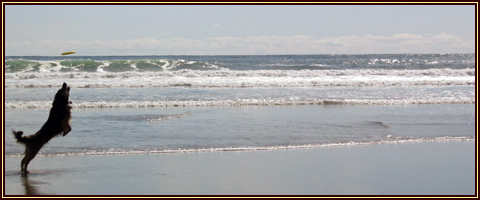Adding Required Fatty Acids To Your Pets Diet
Essential Fatty Acids (EFAs) are a requirement inside everyone’s diet, for equally human and animal. However, the body cannot produce EFAs on its own, so it must be added to the diet every day. The two most commonly known fatty acids are omega 3 (linoleic acid) and omega 6 (alpha-linoleic acid). The diets of our pets, like public, tend to include more omega 6 fatty acids rather than omega 3. This is an imbalance that needs to be enhanced upon.
Omega 3 fatty acids are required as they help out using the proper formation of cell membranes, cardiovascular functions, nourish the lining of the digestive tract, and work to keep your pet’s skin and coat smooth, soft and shiny. Another essential function of omega 3 fatty acids is that they work to reduce inflammatory problems in the body. If you find your pet’s coat is dull and brittle or if he/she tends to have dry skin and scratch a lot, it might be due to a lack of this particular fatty acid.
There are different types of required fatty acid supplements that are available, however which kind you desire to supplement your dog or cat’s diet be able to be a bit of a dilemma.
Pure plant oils such since flax oil, evening primrose oil, safflower oil or a blend of plant oils is a great alternative to fish omega-3 fats. These should be “cold-pressed” oils, as opposed to oils that are typically extracted with chemical solvents. The problem using plant oils is that animals have a harder time converting the fatty acids to a form best used by the animal’s system.
Fish oils, such as salmon oil, halibut liver oil, or cod liver oil are more simply converted and used by an animal’s body. The downside is that fish oils often contain deadly toxins, including high levels of dangerous PCBs, dioxins and detectable levels of mercury. Farmed salmon is the worst for contamination and contains less omega 3 acids than wild salmon. Currently nearly 30% of each fish are farmed, using salmon being in the 90% farmed range. Since well, farmed salmon are often carriers of disease and parasites. When supplementing your pet’s diet with fish oils, prefer oils that come from wild sources, not farmed.
There are also blended fish and plant oil supplements available. These often include a mixture of salmon or cod liver oil and flax, safflower or other such oils that make available a mixture of 3 to 4 parts omega 3 oils to 1 section omega 6 oils. Giving your animal a combination fish/plant supplement can be a groovy alternative to believe, since they should contain fewer toxins as they are not strictly fish oils, yet still ought to be better assimilated by the animal’s body than straight plant oils.







